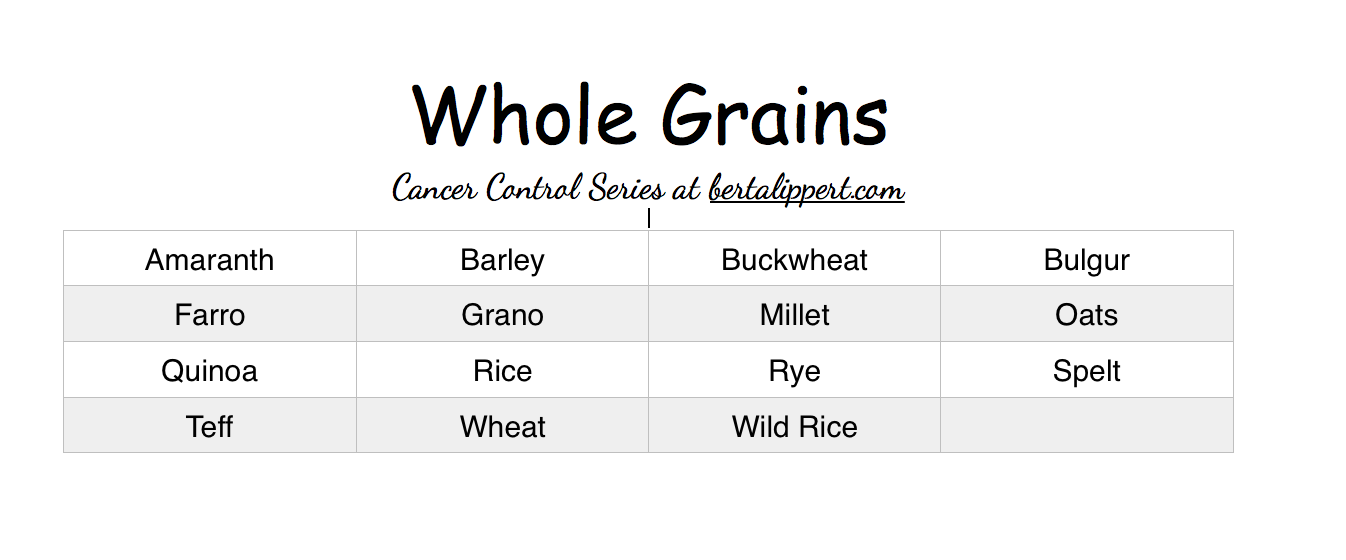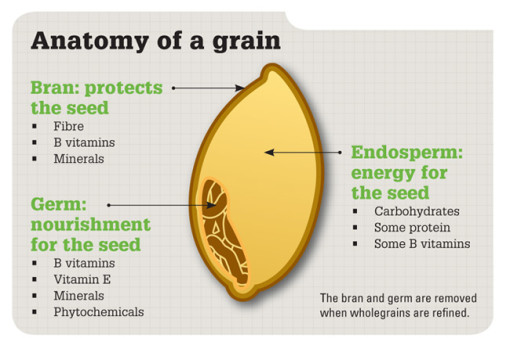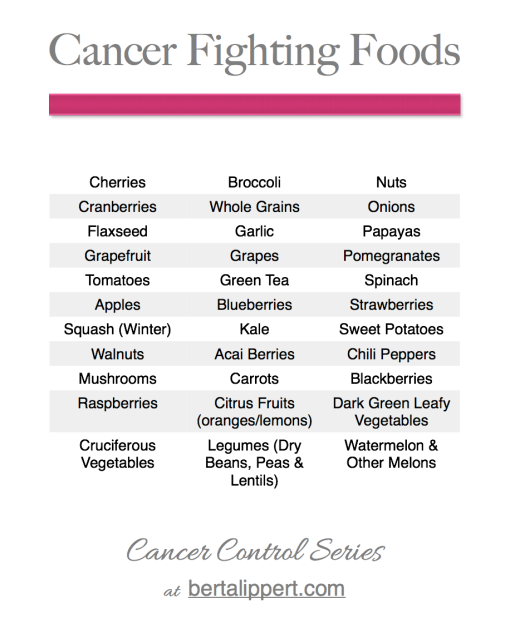Outside of smoking and tobacco use, the most important controllable cancer risk factors are body weight, diet, and physical activity. Today we’re going to focus on diet. As a bonus, what you learn today about eating healthy to prevent cancer, may also lower your risk of developing heart disease, diabetes and other common health concerns.
Here’s a quick summary of what the American Cancer Society recommends for a Cancer Prevention Diet. You can read the entire recommendation here.
1. Practice portion control to help you get to and maintain a healthy weight.
2. Limit processed and red meat.
3. Eat at least 2½ cups of vegetables and fruits every day.
4. Eat whole grains instead of refined grain products.
5. Limit your alcohol intake.
Eating to prevent cancer is not complicated. It may require a shift if you’re used to eating a lot of processed foods, but it’s easy to understand and includes many delicious options.
First off, a cancer prevention diet has an emphasis on plant foods. Plant foods are vegetables, fruits, whole grains and beans. Sometimes people are unsure what is meant by ‘whole grains’ so let’s take a look at that.
All grains start as whole grains with three edible parts, the endosperm, bran and germ. Whole grains still have all three. For example, brown rice is a whole grain because it still has the endosperm, bran and germ. White rice however, is NOT a whole grain as the milling process strips it of its husk, bran, and germ. This process removes a major portion of the rice’s vitamins and minerals and all of its fiber. A small portion of the vitamins and minerals may be added back in if you see it labeled as “Enriched” but stay away from those and get whole grain items instead.
Brown rice, oats and quinoa are staple whole grains in my house in addition to many on the list below. To learn more about each of these whole grains, visit the Whole Grain Council .
 That’s the skinny on whole grains. Now outside of portion control and limiting alcohol, processed foods and red meat, you just have to get in at least 2 1/2 cups of fruits of vegetable each day and you’ll have met all 5 of the American Cancer Society’s recommendations for a cancer prevention diet. For some easy ways to eat more fruits and vegetables, check out my post 5 Simple Ways To Eat More Fruits & Vegetables.
That’s the skinny on whole grains. Now outside of portion control and limiting alcohol, processed foods and red meat, you just have to get in at least 2 1/2 cups of fruits of vegetable each day and you’ll have met all 5 of the American Cancer Society’s recommendations for a cancer prevention diet. For some easy ways to eat more fruits and vegetables, check out my post 5 Simple Ways To Eat More Fruits & Vegetables.
When it comes to cancer prevention, be sure to include the following foods loaded with antioxidants which is linked to a reduced risk of certain cancers.
Beta-carotene and vitamin A: Cantaloupe, carrots, sweet potatoes, spinach, kale, squash
Lutein – Collard greens, spinach, kale, turnip greens
Lycopene – Tomatoes, watermelon, asparagus, pink grapefruit, papaya
Vitamin C (ascobric acid) red bell pepper, papaya, oranges, broccoli, strawberries
Vitamin E – Avocados, broccoli, nuts, sunflower seeds
To make this easy for you, I created a FREE printable you can take with you to the grocery store!
Click Here for the FREE printable!
Sources: American Cancer Society, American Institute For Cancer Research, Academy Of Nutrition & Dietetics , Whole Grain Anatomy Image Source



